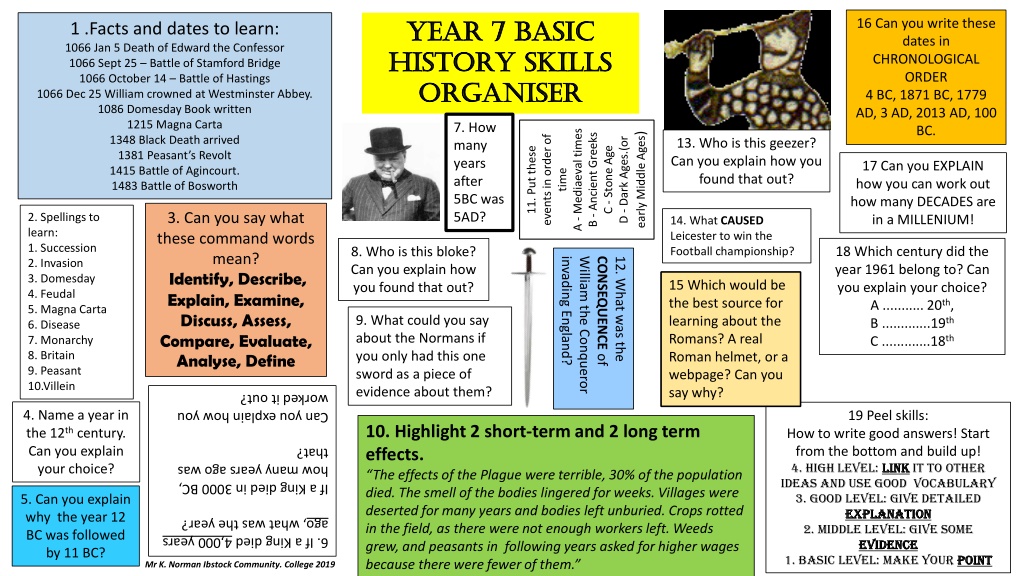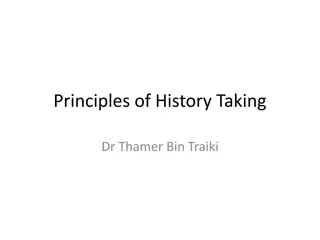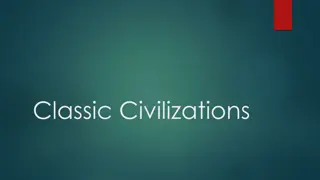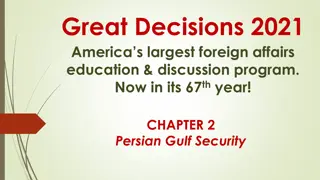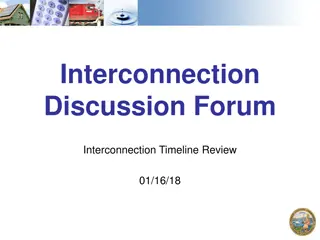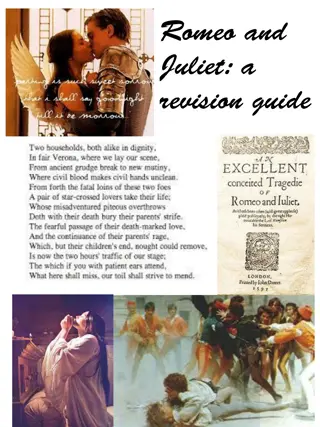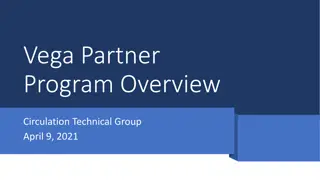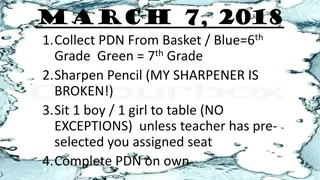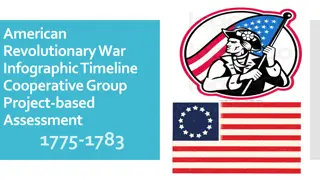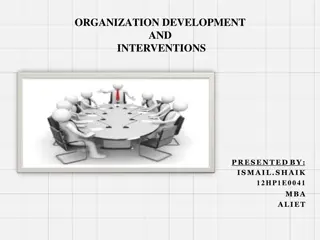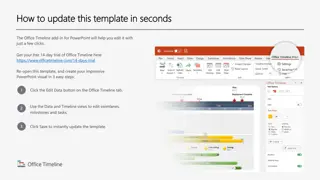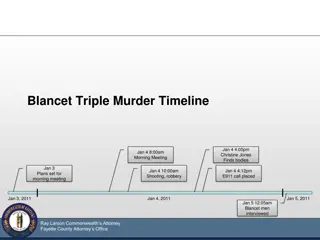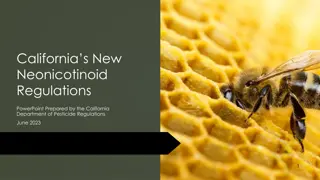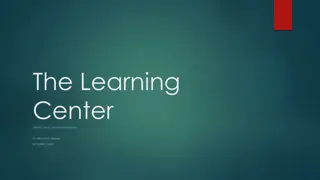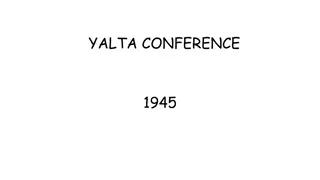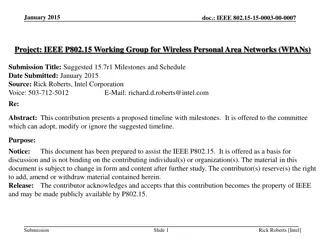History Skills and Timeline Events Organization
Explore a variety of history-related topics such as important dates, events, rulers, and invasions from different periods. Develop your knowledge of chronological order, key historical events, and critical thinking skills. Gain insights into the Normans, Romans, ancient tribes, and significant battles through engaging activities and questions.
Download Presentation

Please find below an Image/Link to download the presentation.
The content on the website is provided AS IS for your information and personal use only. It may not be sold, licensed, or shared on other websites without obtaining consent from the author. Download presentation by click this link. If you encounter any issues during the download, it is possible that the publisher has removed the file from their server.
E N D
Presentation Transcript
16 Can you write these dates in CHRONOLOGICAL ORDER 4 BC, 1871 BC, 1779 AD, 3 AD, 2013 AD, 100 BC. Year 7 BASIC Year 7 BASIC HISTORY SKILLS HISTORY SKILLS Organiser Organiser 1 .Facts and dates to learn: 1066 Jan 5 Death of Edward the Confessor 1066 Sept 25 Battle of Stamford Bridge 1066 October 14 Battle of Hastings 1066 Dec 25 William crowned at Westminster Abbey. 1086 Domesday Book written 1215 Magna Carta 1348 Black Death arrived 1381 Peasant s Revolt 1415 Battle of Agincourt. 1483 Battle of Bosworth 7. How many years after 5BC was 5AD? A - Mediaeval times events in order of early Middle Ages) B - Ancient Greeks D - Dark Ages.(or 13. Who is this geezer? Can you explain how you found that out? 11. Put these C - Stone Age 17 Can you EXPLAIN how you can work out how many DECADES are in a MILLENIUM! time 3. Can you say what these command words mean? Identify, Describe, Explain, Examine, Discuss, Assess, Compare, Evaluate, Analyse, Define 2. Spellings to learn: 1. Succession 2. Invasion 3. Domesday 4. Feudal 5. Magna Carta 6. Disease 7. Monarchy 8. Britain 9. Peasant 10.Villein 14. What CAUSED Leicester to win the Football championship? 18 Which century did the year 1961 belong to? Can you explain your choice? A ........... 20th, B .............19th C .............18th 8. Who is this bloke? Can you explain how you found that out? invading England? William the Conqueror CONSEQUENCE of 12. What was the 15 Which would be the best source for learning about the Romans? A real Roman helmet, or a webpage? Can you say why? 9. What could you say about the Normans if you only had this one sword as a piece of evidence about them? worked it out? 4. Name a year in the 12th century. Can you explain your choice? 19 Peel skills: Can you explain how you 10. Highlight 2 short-term and 2 long term effects. The effects of the Plague were terrible, 30% of the population died. The smell of the bodies lingered for weeks. Villages were deserted for many years and bodies left unburied. Crops rotted in the field, as there were not enough workers left. Weeds grew, and peasants in following years asked for higher wages because there were fewer of them. How to write good answers! Start from the bottom and build up! 4. High level: link link it to other ideas and use good vocabulary 3. Good Level: give detailed explanation explanation 2. Middle Level: give some evidence evidence 1. Basic Level: make your point that? how many years ago was If a King died in 3000 BC, 5. Can you explain why the year 12 BC was followed by 11 BC? ago, what was the year? 6. If a King died 4,000 years point Mr K. Norman Ibstock Community. College 2019
23 What is happening in this diagram? Timeline skills: 20 Draw a line exactly 21 cms long Mark off every 1cm and label each mark increasing by 100 years. Year ZERO to year 2,100. Find ten events from world history and draw a neat straight line marking the year ( 1cm = 100 years and 1 mm =10 years.) Remember to put the year YOU were born! 22 Investigate: 21 Making notes: the QUICK way! Using a SPIDER CHART means you don t have write every single thing down (huurrray!) Read this paragraph, and transfer the 5 most important facts onto the Spider Chart: Who was Harald Hardraada? Who was Edgar the Atheling? Who was Harold Godwinson? What was a Housecarl? What was a shield- wall? William the Conqueror was Duke of Normandy from his childhood. His Father, Robert the Magnificent., died in 1035. He was born in Falaise and he had to fight many battles to keep his throne, and became a tough soldier. He invaded England in 1066 and became the first Norman French King. He had lots of arguments with his sons and sometimes fought wars with them! When he died, his corpse burst as it was being lowered into the grave! 26 Which international Empire controlled Welsh speaking Britannia for 400 years from 55BC? List 10 facts about them. 24 Which migrant French speaking people conquered England in 1066? Their descendants still rule today. List 10 facts about them. 27 Which migrant tribes were invading English speaking Britain in the 800sAD? Where did they come from? List 10 facts about them. 25 Which migrant tribes were invading Welsh speaking Britain in the 600sAD? Where did they come from? List 10 facts about them. William Mr K. Norman Ibstock Community. College 2019
There are 5 history skills for you to MASTER! You can use these tables to improve your progress! There are 5 history skills for you to MASTER! You can use these tables to improve your progress! 4. EXPLAINING INTERPRETATIONS 1. NATURE OF SOURCES I can explain different points of view using context 9 Highest I can explain how NOMP affects an enquiry. 9 Highest and background knowledge. 8 Highest 9 Exceeding I can use the NATURE, ORIGIN, MESSAGE & POINT of a source in an answer 8 Highest 9 Exceeding I can explain different points of view. 7 Highest 8 Exceeding 9 Secure I can use the NATURE, ORIGIN & MESSAGE of a source in an answer. 7 Highest 8 Exceeding 9 Secure I can describe differences between points of view. 7 Exceeding 8 Secure 9 Growing I can use the NATURE & ORIGIN of a source in an answer 7 Exceeding 8 Secure 9 Growing I can identify different points of view on my own. 7 Secure 8 Growing 9 Foundation I can use the NATURE of a source in an answer. 7 Secure 8 Growing 9 Foundation I can identify different points of view with help 7 Growing 8 Foundation I can recognise Primary and Secondary sources. 7 Growing 8 Foundation I can recognise similarities and differences between ideas/sources. 7 Foundation I can recognise Primary and Secondary sources with help. 7 Foundation I can recognise similarities OR differences. 2. USING SOURCES 9 Highest I can write an analytical answer using sources & suggest What next ? 8 Highest 9 Exceeding I can write an analytical How and Why answer using sources. 7 Highest 8 Exceeding 9 Secure I can write a descriptive answer using What, Who, When, Where from a source. 5. WRITING TO A PURPOSE 7 Exceeding 8 Secure 9 Growing I can select a source or quotation to use in an answer. 9 Highest I can write a balanced both sides of the argument answer using PEEL 7 Secure 8 Growing 9 Foundation I can make basic content/evidence based statements based on sources. I can write a structured PEE answer and LINK to other wider background 8 Highest 9 Exceeding 7 Growing 8 Foundation I can repeat back information from a source on my own. knowledge or ideas. 7 Foundation I can repeat back information, with help, from a source. 7 Highest 8 Exceeding 9 Secure I can write POINTS, & relevant EVIDENCE to EXPLAIN 7 Exceeding 8 Secure 9 Growing I can write POINTS in paragraphs with EVIDENCE 7 Secure 8 Growing 9 Foundation I can write POINTS in paragraphs 7 Growing 8 Foundation I can tell a story of an event. 7 Foundation I can tell a story of an event with help 3. USING HISTORICAL IDEAS 9 Highest Causation & context: I can use context in cause & consequences. 8 Highest 9 Exceeding Causation: I can link multiple causes and consequences. 7 Highest 8 Exceeding 9 Secure Causation: I can prioritise causes and consequences 7 Exceeding 8 Secure 9 Growing Causation: I can recognise cause and consequence 7 Secure 8 Growing 9 Foundation Chronology: I can put undated events in logical order. 7 Growing 8 Foundation Chronology: I can put complex dated events into order (e.g. BC & AD) 7 Foundation Chronology: I can put simple dated events into order (e.g. BC or AD) Mr K. Norman Ibstock Community. College 2019
RELIABILITY Is the source accurate and can we trust it? Could it be biased? Written sources diaries, letters, documents, books, newspapers, poems etc. ORIGIN What type of source is it? Who made it? When? Where? How do we investigate things? Using a source Visual sources paintings, photographs, cartoons etc. MESSAGE What is the source telling or showing you? Physical sources artefacts, coins, jewellery, clothing etc. PURPOSE Why was the source made? Oral sources spoken word, audio recordings, songs This slide has been borrowed from Ivanhoe College
